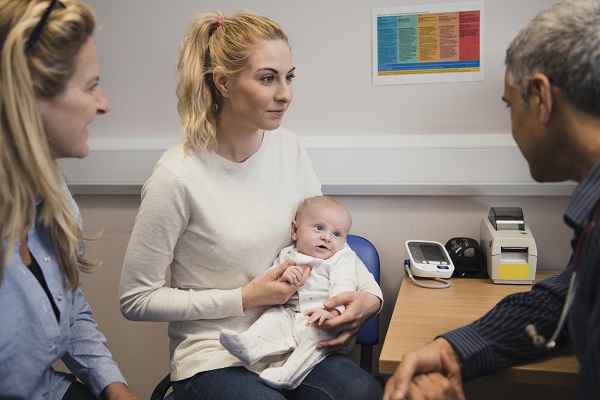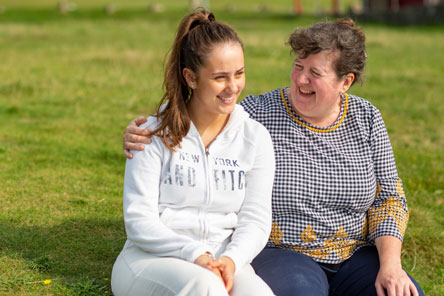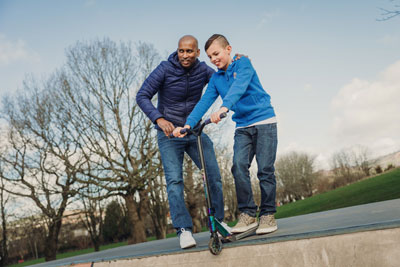Children and young people's guide
who does what?
You'll meet lots of people who want to help you. Here are their jobs and what they do.
people who can help you
There are lots of people to talk to.
The main job of all those responsible for looking after children and young people is to keep them safe from harm.
A social worker is someone who has been trained to help children and their families through difficult times.
They will explain things to you and make sure you understand what is going on.
It can be helpful to let your social worker know how you are feeling about being in foster care and together you can talk about what the plan is for you.
They are the person to go to, to ask questions if your foster carer doesn’t know the answer. Your foster carer can help you get in touch with them, or you should have their number if you want to get in touch. Your social worker will also regularly visit you.
personal advisor
A Personal Advisor will help you to plan for your future and support you in achieving your goals.
They will work closely with you when you are around 15 or 16 years old, making sure your plan towards adulthood is realistic and continues to meet your needs.
Your Personal Advisor should ensure that your plan is reviewed regularly, ensure that you are receiving the support you need, and stay in touch with you on your journey into adulthood.
advocate
This is a trusted adult who will come meet you and hear your views.
You are allowed to ask for an advocate at any time.
Advocacy aims to empower young people by giving them a voice to share their thoughts and feelings and making sure they get heard.
They are not a social worker or work for social services, so will only speak on behalf of your views and your views only.
They can help communicate to other adults, including your social worker and IRO what you want and how you feel when you may feel less confident to do so. They can also help you to make a complaint or make sure your voice is heard in meetings.
IRO (independent reviewing officer)
Your Independent Reviewing Officer will sometimes be called your IRO.
They are responsible for making sure that all the adults do what they say they will do.
They will get in touch with you within your first 3 weeks of being in care.
Your Independent Reviewing Officer should talk to you before every review meeting to make sure you’re happy about where you are living and to check how things are going in all parts of your life, including school, time with your family and other things you do that are important to you.
They will provide you with their contact details if you want to contact your Independent Reviewing Officer at any time. You don’t have to wait until your review meeting if you want to talk to them about anything or let them know of something that has or has not happened since your last meeting.
fostering supervising social worker
Supervising social workers work with the fostering family, supporting and guiding them.
They are there to make sure everyone is happy and everything feels settled in the home.
The supervising social workers will also let your carers know about meetings when they can hear from senior council managers about any changes to the fostering service, plus invites for them and you to attend fun days and other activities, with other foster families and children.
support worker
A support worker is someone who works alongside the social workers and supervising social workers. They may come help you and be there to support you and your foster family: like going for days out or visits to your family, they may work with you to help you with anything you are going through, understanding your life journey so far.
foster carer
Foster carers give you a safe place to stay, a stable home-life and routine. They will listen to you. They will support you every day. They will get to know you really well.
teachers and school staff
Teachers and school staff help you to learn, but they are also someone you can talk to about anything that’s worrying you.

social worker
A social worker is someone who has been trained to help children and their families through difficult times.
They will explain things to you and make sure you understand what is going on.
It can be helpful to let your social worker know how you are feeling about being in foster care and together you can talk about what the plan is for you.
They are the person to go to, to ask questions if your foster carer doesn’t know the answer. Your foster carer can help you get in touch with them, or you should have their number if you want to get in touch. Your social worker will also regularly visit you.

personal advisor
A Personal Advisor will help you to plan for your future and support you in achieving your goals.
They will work closely with you when you are around 15 or 16 years old, making sure your plan towards adulthood is realistic and continues to meet your needs.
Your Personal Advisor should ensure that your plan is reviewed regularly, ensure that you are receiving the support you need, and stay in touch with you on your journey into adulthood.

advocate
This is a trusted adult who will come meet you and here your views.
You are allowed to ask for an advocate at any time.
Advocacy aims to empower young people by giving them a voice to share their thoughts and feelings and making sure they get heard.
They are not a social worker or work for social services, so will only speak on behalf of your views and your views only.
They can help communicate to other adults, including your social worker and IRO what you want and how you feel when you may feel less confident to do so. They can also help you to make a complaint or make sure your voice is heard in meetings.

IRO (independent reviewing officer)
Your Independent Reviewing Officer will sometimes be called your IRO.
They are responsible for making sure that all the adults do what they say they will do.
Your Independent Reviewing Officer should talk to you before every review meeting to make sure you’re happy about where you are living and to check how things are going in all parts of your life, including school, time with your family and other things you do that are important to you.
You can contact your Independent Reviewing Officer at any time; they will provide you with their contact details. You don’t have to wait until your review meeting if you want to talk to them about anything or let them know of something that has or has not happened since your last meeting.

fostering supervising social worker
Supervising social workers work with the fostering family, supporting and guiding them.
They are there to make sure everyone is happy all feel settled in the home.
The supervising social workers will also let your carers know about meetings when they can hear from senior council managers about any changes to the fostering service, plus invites for them and you to attend fun days and other activities, with other foster families and children.

support worker
A support worker is someone who works alongside the social workers and supervising social workers. They may come help you and be there to support you and your foster family with anything, like going for days out or visits.

social worker